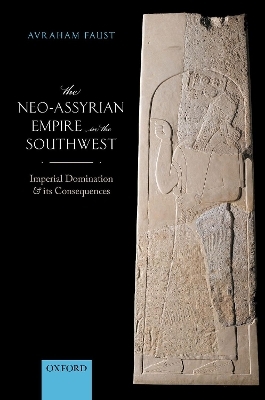
The Neo-Assyrian Empire in the Southwest
Oxford University Press (Verlag)
978-0-19-884163-0 (ISBN)
The Neo-Assyrian empire -- the first large empire of the ancient world -- has attracted a great deal of public attention ever since the spectacular discoveries of its impressive remains in the 19th century. The southwestern part of this empire, located in the lands of the Bible, is archaeologically speaking the best known region in the world, and its history is described in a plethora of texts, including the Hebrew Bible.
Using a bottom-up approach, Avraham Faust utilises this unparalleled information to reconstruct the outcomes of the Assyrian conquest of the region and how it impacted the diverse political units and ecological zones that comprised it. In doing so, he draws close attention to the transformations the imperial take-over brought in its wake. His analysis reveals the marginality of the annexed territories in the southwest as the empire focused its activities in small border areas facing its prospering clients. A comparison of this surprising picture to the information available from other parts of the empire suggests that the distance of these provinces from the imperial core is responsible for their fate. This sheds new light on factors influencing imperial expansion, the considerations leading to annexation, and the imperial methods of control, challenging old conventions about the development of the Assyrian empire and its rule.
Faust also examines the Assyrian empire within the broader context of ancient Near Eastern imperialism to answer larger questions on the nature of Assyrian domination, the reasons for its harsh treatment of the distant provinces, and the factors influencing the limits of its reach. His findings highlight the historical development of imperial control in antiquity and the ways in which later empires were able to overcome similar limitations, paving the way to much larger and longer-lasting polities.
Avraham Faust is Professor of Archaeology at the Department of General History, Bar-Ilan University. He is currently directing the excavations at Tel 'Eton in the Judean Shephelah, and the survey in its vicinity, and he is also the director of "The National Knowledge Center on the History and Heritage of Jerusalem and its Environs". His research interests include the archaeology of ancient Israel in the Bronze and Iron Ages (biblical archaeology), especially from social and anthropological perspectives, as well as aspects of settlement archaeology, ethnicity, processes of social complexity, and excavations and survey methods and methodology. He has more than 200 publications, covering various aspects of the region's archaeology from the Early Bronze Age to the Byzantine period, with a special focus on Iron Age society.
1: Introduction
2: Before the Empire: The Southern Levant in the 8th century BCE
3: Under the Empire: Settlement and Demography in the Southwestern Periphery of the Assyrian Empire in the 7th Century BCE
4: Prosperity, Depression, and the Empire: Economic Developments in the Southwest during the 7th Century BCE
5: Assyrians in the Southwest? The Evidence for Assyrian Administration and Presence
6: The Empire in the Southwest: Reconstructing Assyrian Activity in the Provinces
7: Local Responses to the Empire: From Armed Resistance to Integration
8: "They Make a Desolation and They Call it Peace": Reexamining the Nature of the Imperial Peace
9: Empire by Design? Imperial Policies and Planning and the Conquest of the Southwest
10: A Province Too Far? The Assyrian Empire, its Southwestern Margins, and the Dynamics of Imperial Expansion, Conquest, and Rule
| Erscheinungsdatum | 12.04.2021 |
|---|---|
| Verlagsort | Oxford |
| Sprache | englisch |
| Maße | 165 x 240 mm |
| Gewicht | 820 g |
| Themenwelt | Geisteswissenschaften ► Archäologie |
| Geschichte ► Teilgebiete der Geschichte ► Wirtschaftsgeschichte | |
| ISBN-10 | 0-19-884163-9 / 0198841639 |
| ISBN-13 | 978-0-19-884163-0 / 9780198841630 |
| Zustand | Neuware |
| Informationen gemäß Produktsicherheitsverordnung (GPSR) | |
| Haben Sie eine Frage zum Produkt? |
aus dem Bereich


